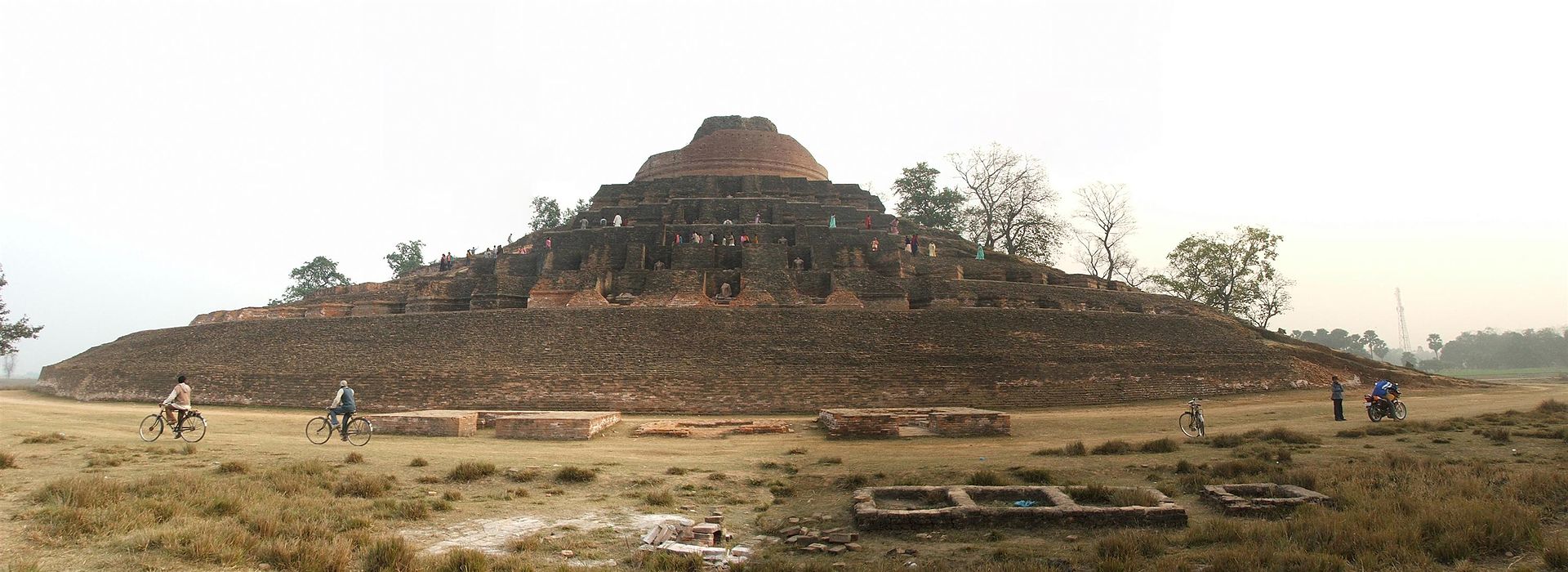Kesaria Buddhist Stupa, Bihar

Address
Kesaria Buddhist Stupa, Kesariya Road, Tajpur Deur, Bihar 845424
Diety
Buddha
Introduction
Kesariya Stupa is a Buddhist stupa in Kesariya, located at a distance of 110 kilometres (68 mi) from Patna, in the Champaran (east) district of Bihar, India. The first construction of the Stupa is dated to the 3rd century BCE. The world-famous Kesaria Buddha stupa in east Champaran district of Bihar is waterlogged following floods in some parts of the district after heavy rainfall in the catchment areas of river Gandak in neighbouring Nepal. “Since it is waterlogged from all sides, it is feared that it may suffer damage. But, even last year too the stupa was waterlogged,” said an Archaeological Survey of India (ASI)
Puranic Significance
The site’s exploration reportedly started in the early 19th century, from its discovery led by Colonel Mackenzie in 1814 to General Cunningham’s proper excavation in 1861–62. An excavation was conducted by archaeologist KK Muhammed of the Archaeological Survey of India (ASI) in 1998. The original Kesariya stupa probably dates to the time of Ashoka (circa 250 BCE), as the remains of a capital of a Pillar of Ashoka were discovered there. The stupa mound may even have been inaugurated during the Buddha’s time, as it corresponds in many respects to the description of the stupa erected by the Licchavis of Vaishali to house the alms bowl the Buddha has given them. The current stupa dates to the Gupta Dynasty between 200 AD and 750 AD, and may have been associated with the 4th century ruler Raja Chakravarti. The local people call this stupa “Devala”, meaning “house of god”. The ASI has declared the stupa a protected monument of national importance. Despite being a popular tourist attraction, Kesariya is yet to be developed and a large part of the stupa still remains under vegetation
Special Features
It is regarded as the largest Buddhist stupa in the world and has been drawing tourists from across several Buddhist countries. The local call the stupa “devalaya” meaning “house of gods”. The ASI has declared it a protected monument of national importance. The original Kesaria stupa is said to date back to the time of emperor Ashoka (circa 250 BCE) as the remains of an Ashokan pillar was discovered there.
Century/Period/Age
1000-2000 years old
Managed By
Archeological survey of India.
Nearest Bus Station
Kesariya
Nearest Railway Station
Patna
Nearest Airport
Patna









